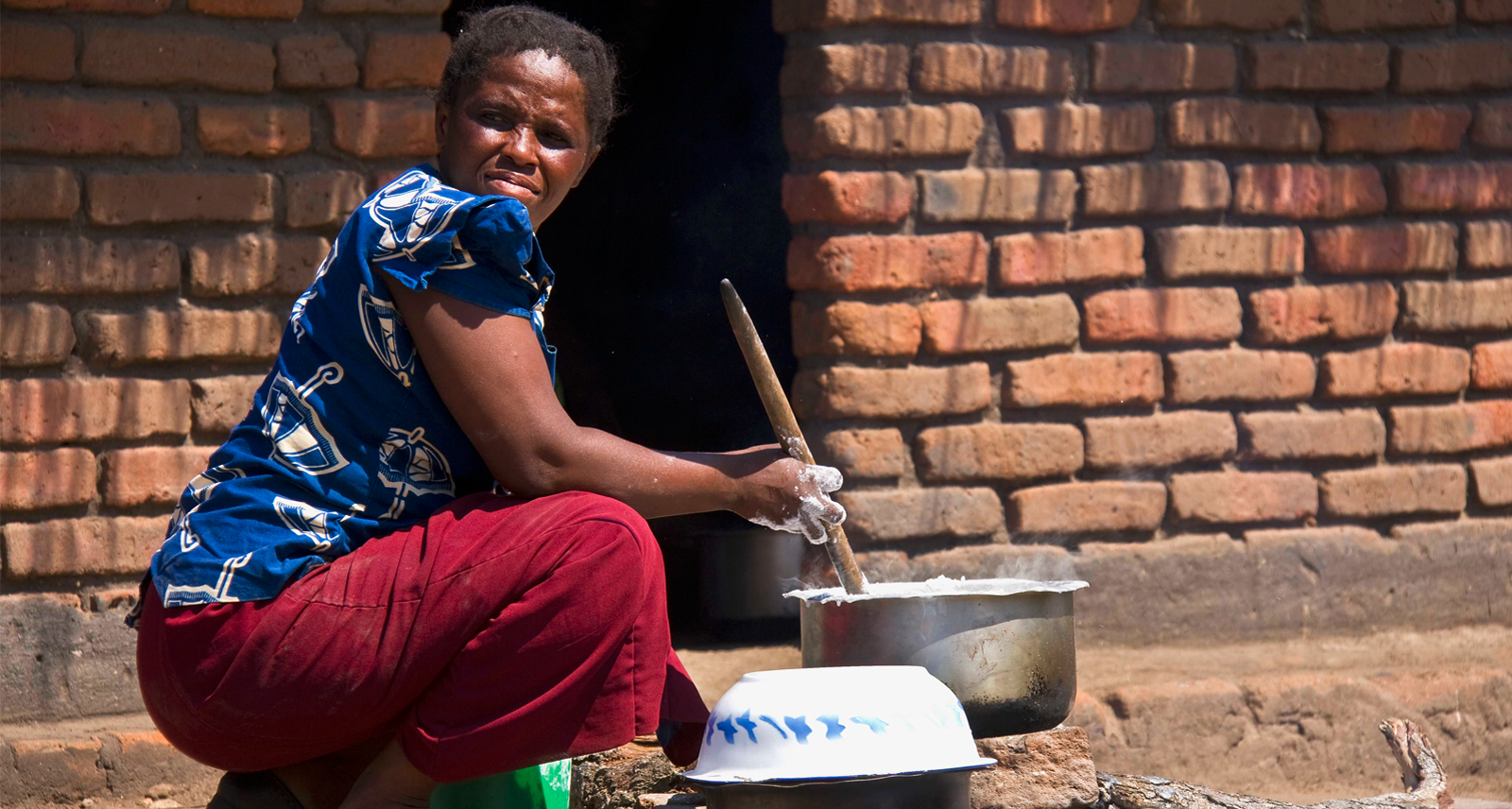Blogs

The COVID-19 global pandemic is exacerbating food insecurity in African countries, including Malawi.
Food security exists when every person has physical and economic access to sufficient and nutritious food that meets their dietary needs. Hitherto, food insecurity and undernourishment remain a significant concern in Malawi.
It is widely accepted that the primary cause of food insecurity and malnourishment is chronic poverty. Many Malawians lack economic opportunities to produce or purchase adequate, safe, nutritious food. Not to overlook certain factors, food insecurity is also caused by the rising population in Malawi.
Food insecurity is also influenced by climate-related shocks that have subsequently led to low productivity in the agricultural sector. According to Aquilina Ngowera, smallholder farmers in Malawi continuously cultivate small pieces of land, expecting adequate harvests to feed their families. Regrettably, in the last decade, 25% of the country’s population has experienced droughts and floods more than seven times.
In addition, Malawi currently has an unstable economy which has tolled on the availability and access to food. The inflation in Malawi has increased food prices, making it harder for people to have the “3 meals a day” that the government promised. Furthermore, the high unemployment rates have made income-earning harder than before to sustain daily livelihood.
The challenges associated with food insecurity and poor nutrition can affect many things in a community. Still, it mainly affects people’s health, making them prone to chronic diseases and poor mental health and development.
According to the Borjen project, 37% of Malawian children are stunted. Due to chronicle undernourishment which detours their brain development affecting their education. Productivity requires an adequate and nutritious diet, something most Malawians lack.
A recent study on “Improving nutritional status among urban poor children in sub-Saharan Africa” by Maurice Mutisya et al. gives an elaborate explanation of interventions that improve nutritional status in infants and young children (IYC) living in low-income slums in sub-Saharan Africa (SSA).
The approaches put in place to improve nutritional status include Nutrition-sensitive intervention, which highlights primary causes of nutrition that include agriculture and food security, and nutrition-specific intervention, which addresses proximal causes of nutrition illustrated by adequate food and nutrient intake and caregiving and parenting practices.
It is estimated that these interventions could prevent 20% of deaths in countries with high child mortality among under-fives. Conferring to the article, nutrition-sensitive factors should be considered to maximise the potential impact and effectiveness of implementing these interventions.
A cost-benefit analysis on food and nutrition security in Malawi, implemented by the National Planning Commission with technical assistance from the Copenhagen Consensus Center and the African Institute for Development Policy (AFIDEP), highlights interventions that can deliver sustainable food and nutrition security as well as greater dietary diversity.
The first intervention to promote sustainable food and nutrition is crop diversification. Most Malawian farmers are smallholder subsistence farmers who engage in monocropping, leading to a nutrition deficiency. The intervention advocates encouraging and supporting farmers to diversify into higher value and more nutritious crops in production. The report recommends different strategies for Malawi’s different agro-ecological zones to produce crops that can withstand the weather and climatic conditions of the region.
Crop diversification will help improve agricultural productivity, provide adequate food supply, promote food security and improve food nutrition.
The second intervention is using Purdue Improved Crop Storage (PICS) bags. These storage technologies limit post-harvest losses to 9% from 24% to 28%. PICS bags improve storage quality and extend the longevity of existing and harvested crops, mitigating any threats of pests and rotting. This intervention improves storage facilities reducing losses and increasing the amount of food available for consumption.
Malawi is exuberant! Yet people still suffer from food insecurity and malnourishment due to chronic poverty. Implementing these interventions would finance and assist in improving quality and providing adequate food, saving Malawians from dire hunger – giving them the three meals they deserve.
Read the full technical report and policy brief here:
Related Posts





